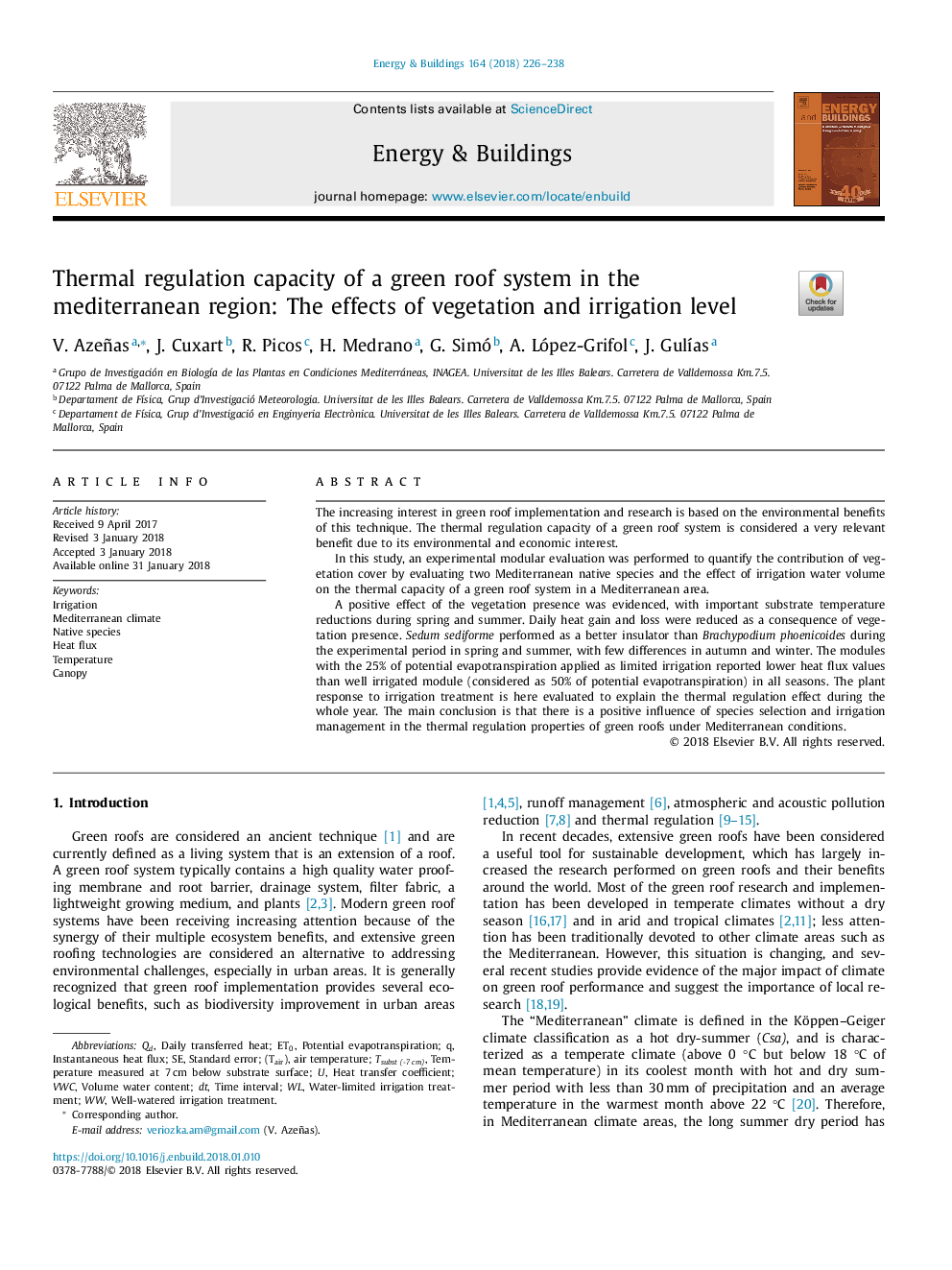| Article ID | Journal | Published Year | Pages | File Type |
|---|---|---|---|---|
| 6728927 | Energy and Buildings | 2018 | 13 Pages |
Abstract
A positive effect of the vegetation presence was evidenced, with important substrate temperature reductions during spring and summer. Daily heat gain and loss were reduced as a consequence of vegetation presence. Sedum sediforme performed as a better insulator than Brachypodium phoenicoides during the experimental period in spring and summer, with few differences in autumn and winter. The modules with the 25% of potential evapotranspiration applied as limited irrigation reported lower heat flux values than well irrigated module (considered as 50% of potential evapotranspiration) in all seasons. The plant response to irrigation treatment is here evaluated to explain the thermal regulation effect during the whole year. The main conclusion is that there is a positive influence of species selection and irrigation management in the thermal regulation properties of green roofs under Mediterranean conditions.
Keywords
Related Topics
Physical Sciences and Engineering
Energy
Renewable Energy, Sustainability and the Environment
Authors
V. Azeñas, J. Cuxart, R. Picos, H. Medrano, G. Simó, A. López-Grifol, J. GulÃas,
